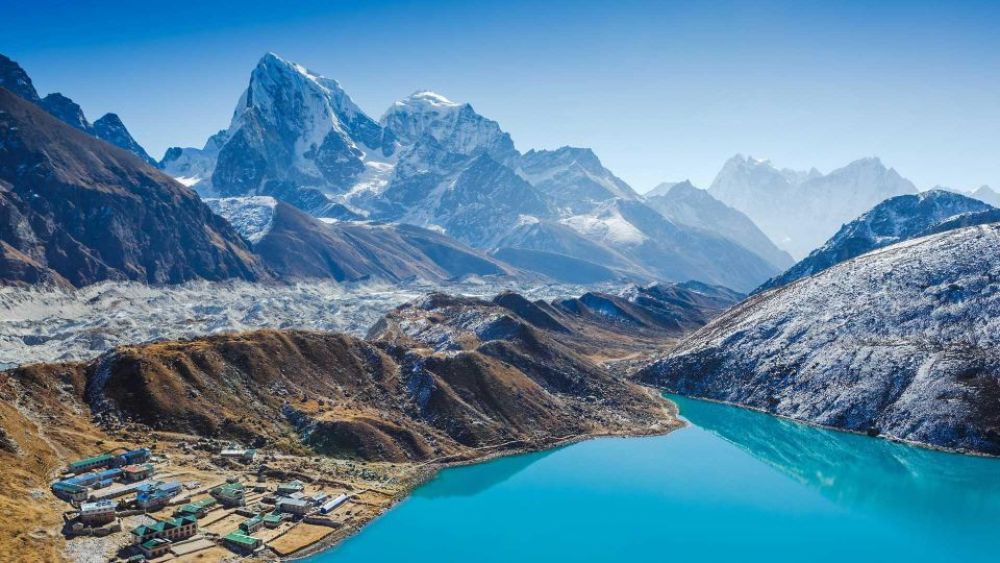

Located in the heart of Sagarmatha National Park in Nepal, Gokyo Lakes are a series of six spectacular freshwater lakes. Situated at an altitude ranging from 4,700 to 5,000 meters above sea level, these lakes are amongst the highest freshwater systems in the world. The Gokyo Lakes are a paramount part of the sacred Himalayan landscape and hold great religious significance for both Buddhists and Hindus.
Tourism in Nepal began to flourish with the first successful ascent of Mount Everest in 1953 by Sir Edmund Hillary and Tenzing Norgay Sherpa. This event placed Nepal on the global map as a premier adventure and trekking destination. However, it wasn't until the 1970s, when travel to Nepal became more accessible, that the country witnessed a tourism boom. Sagarmatha National Park, established in 1976 and later declared a UNESCO World Heritage Site, has since been a major draw for trekkers and nature enthusiasts.
The Gokyo Valley trek, which leads to the Gokyo Lakes, gained popularity among trekkers seeking a less crowded alternative to the traditional Everest Base Camp trek. With an increasing number of trekkers visiting the Gokyo Lakes each year, the region has seen significant development in tourism infrastructure. Lodges, teahouses, and other necessary services for trekkers have been established, ensuring visitors have comfortable and memorable stays in the high Himalayas.
Gokyo Lakes are not just a natural wonder but also an ecological treasure. They are designated as Ramsar sites, highlighting their global significance as wetlands. The lakes are also integral to the local Sherpa community's culture, featuring in many of their festivities and rituals.
In recent years, sustainable tourism has become a priority, with a focus on minimizing environmental impact and supporting local communities. Many trekkers are now opting for eco-friendly lodges and are consciously contributing to conservation efforts. Moreover, new trends such as high-altitude marathon events and photography tours are gaining traction. Amidst the COVID-19 pandemic, Nepal has seen shifts in tourism practices, with health protocols and safety measures becoming integral parts of travel planning.
Despite its allure, tourism in the Gokyo Lakes region faces challenges such as waste management, trail erosion, and preservation of local culture. To tackle these issues, various conservation programs have been implemented, which include strict waste-disposal regulations and community-based tourism initiatives to ensure that the pristine nature of the Gokyo Lakes is maintained for future generations to appreciate.
As a high-altitude destination boasting awe-inspiring natural beauty, Gokyo Lakes continues to captivate trekkers and adventurers from around the world. Preserving this Himalayan jewel through responsible tourism practices is crucial in ensuring that it remains a beacon of natural and cultural heritage in Sagarmatha National Park.